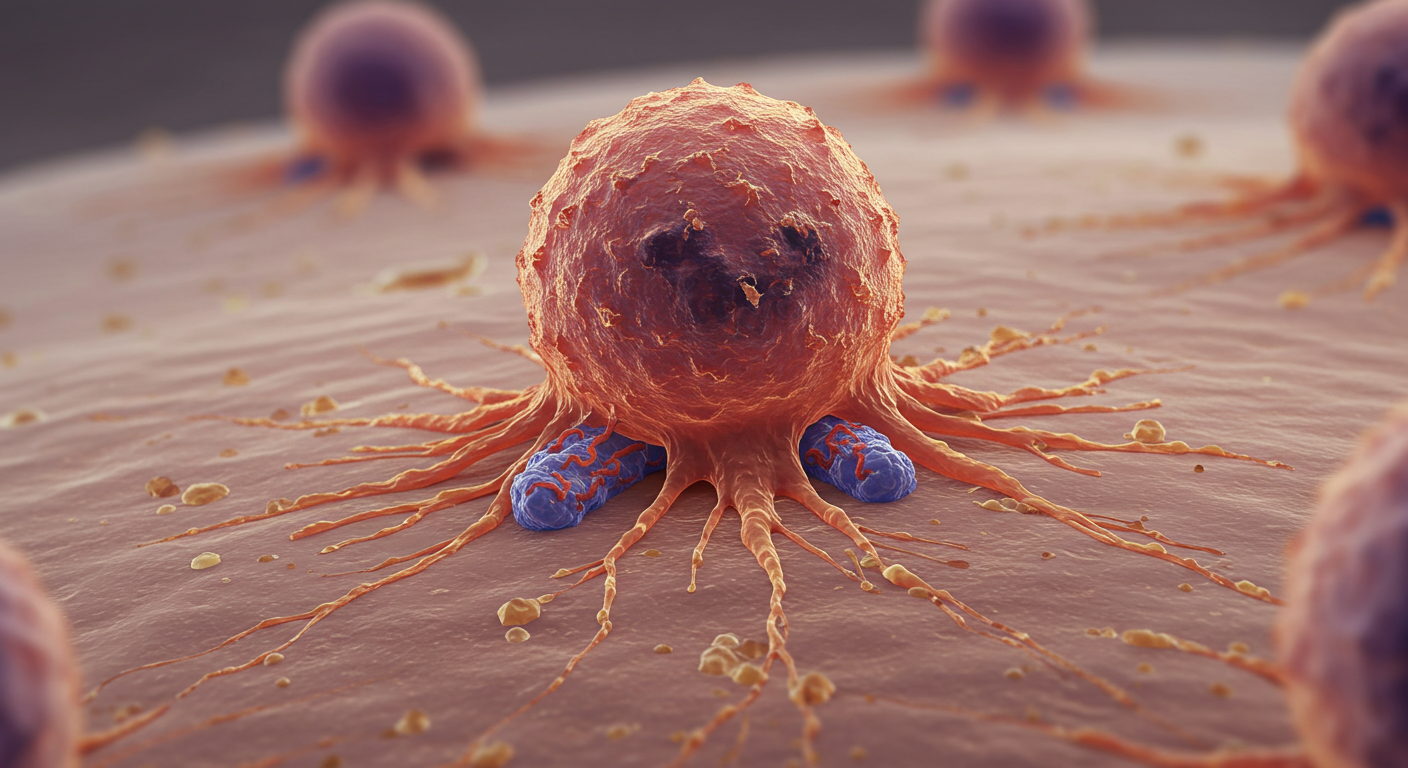Dr. Kumar’s Take:
This review highlights a major shift in how we understand cancer risk. It’s not just about weight—it’s about what your metabolism is doing behind the scenes. Even people who appear thin can have metabolic problems that increase their risk of getting cancer. If you’re metabolically unhealthy—whether or not you’re overweight—you may be at higher risk for cancers like colorectal, breast (postmenopausal), pancreatic, and bladder cancer. The good news? Lifestyle changes like exercise, better sleep, and time-restricted eating can make a big difference.
Key Takeaways:
✔ Metabolic dysfunction increases the risk of at least 13 types of cancer, regardless of body size.
✔ Even “normal weight” individuals with poor metabolic health are at higher risk.
✔ Metabolic health can be improved through exercise, meal timing, and anti-inflammatory diets.
✔ Liver and pancreas markers may help predict cancer risk beyond traditional metabolic syndrome criteria.
Actionable tip:
Don’t rely on weight alone to judge your health. Ask your doctor to check your fasting glucose, triglycerides, HDL cholesterol, blood pressure, and waist size—even if you’re not overweight.
Brief Summary:
This comprehensive review looked at 129 studies examining how metabolic dysfunction—things like high blood sugar, insulin resistance, inflammation, and liver enzyme issues—relates to cancer risk and survival. Researchers found that even if someone isn’t obese, they may still have high risk if their metabolism is off. People with “metabolically unhealthy normal weight” had similar cancer risks to those with obesity. The study calls for a new, unified definition of metabolic dysfunction to better assess cancer risk and guide prevention.
Study Design:
The researchers reviewed 129 studies that explored how different markers of metabolic dysfunction—including metabolic syndrome, liver enzymes, insulin levels, and body fat distribution—relate to the risk of obesity-related cancers. These included colorectal, pancreatic, postmenopausal breast, and others. They also examined studies on mortality after a cancer diagnosis.
Results:
- Metabolic syndrome increased the risk of many cancers, especially liver, breast, colorectal, and pancreatic.
- Markers like ALT, AST, GGT, insulin, and CRP were also linked to cancer risk.
- People who looked healthy by weight but had poor metabolic markers were still at high risk.
- Having even one metabolic problem increased cancer risk.
- Lifestyle changes like physical activity and healthy diets helped improve metabolic health and lower risk.
What Is Metabolic Dysfunction?
Metabolic dysfunction refers to problems like:
- High blood sugar or insulin resistance
- Low HDL (good cholesterol)
- High triglycerides
- High blood pressure
- Inflammation
- Liver enzyme abnormalities (e.g., ALT, AST)
- Central obesity (excess belly fat)
These issues can exist even in people with a “normal” body weight, especially if they have poor diet, low activity, or genetics that predispose them.
Related Studies and Research
Metabolic Syndrome and Diet: Treatment and Food Review – Reviews how specific dietary strategies can improve metabolic function and reduce disease risk.
Metabolic Syndrome, Heart Disease, and Inflammation – Discusses the inflammatory pathways linking metabolic dysfunction to heart disease.
Linoleic Acid and Heart Disease – Investigates the role of polyunsaturated fats in inflammation and cardiovascular health.
Small HDL Particles, Physical Activity, and Longevity – Explores how lifestyle factors influence metabolic markers and long-term health outcomes.
Frequently Asked Questions
Can you be thin and still at risk for obesity-related cancer?
Yes. Many people who look lean still have metabolic problems that raise their risk.
What are the most important metabolic markers to watch?
Fasting glucose, triglycerides, HDL cholesterol, waist circumference, blood pressure, and liver enzymes like ALT and AST.
Is there a specific diet that helps?
The Mediterranean diet and time-restricted eating both show promise in improving metabolic health.
How much exercise is needed?
At least 150 minutes of moderate activity per week, plus strength training twice a week, is recommended.
Conclusion
Metabolic health matters—even more than weight—when it comes to cancer risk. Whether you’re lean or have obesity, getting your metabolic markers checked and taking steps to improve them can reduce your cancer risk and improve long-term health. Regular exercise, balanced eating, and smart meal timing are powerful tools.


